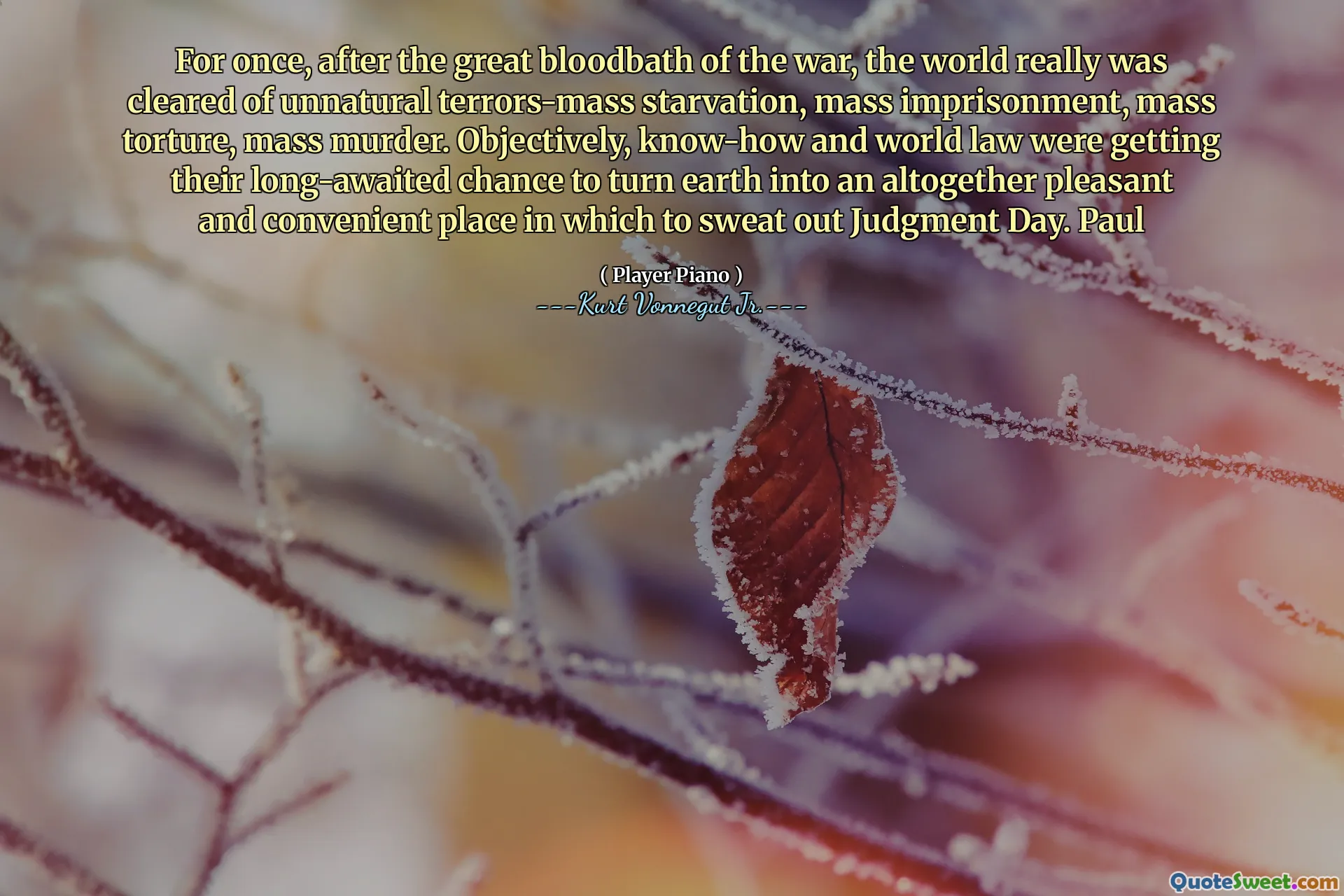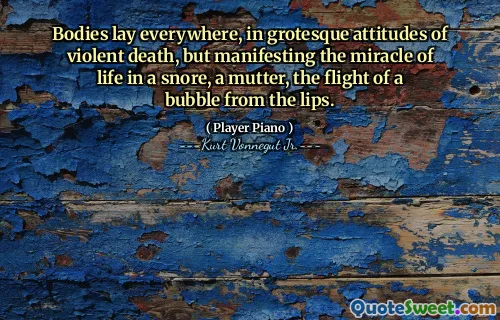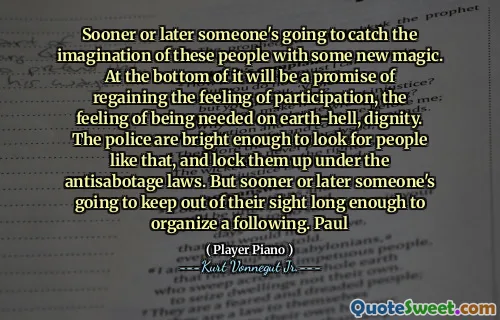
For once, after the great bloodbath of the war, the world really was cleared of unnatural terrors-mass starvation, mass imprisonment, mass torture, mass murder. Objectively, know-how and world law were getting their long-awaited chance to turn earth into an altogether pleasant and convenient place in which to sweat out Judgment Day. Paul
In the aftermath of a devastating war, the world found itself devoid of the extreme horrors that had plagued it for so long, such as widespread famine and brutal oppression. This new reality offered a unique opportunity for knowledge and established laws to reshape society, paving the way for a more humane existence. People could now focus on rebuilding and moving towards a hopeful future.
Amid this period of potential transformation, individuals like Paul in Vonnegut's "Player Piano" begin to grapple with the implications of this new world. While the absence of terror is welcomed, the story explores the complexities and responsibilities that come with creating a better society, highlighting both the challenges and possibilities for the human experience.











